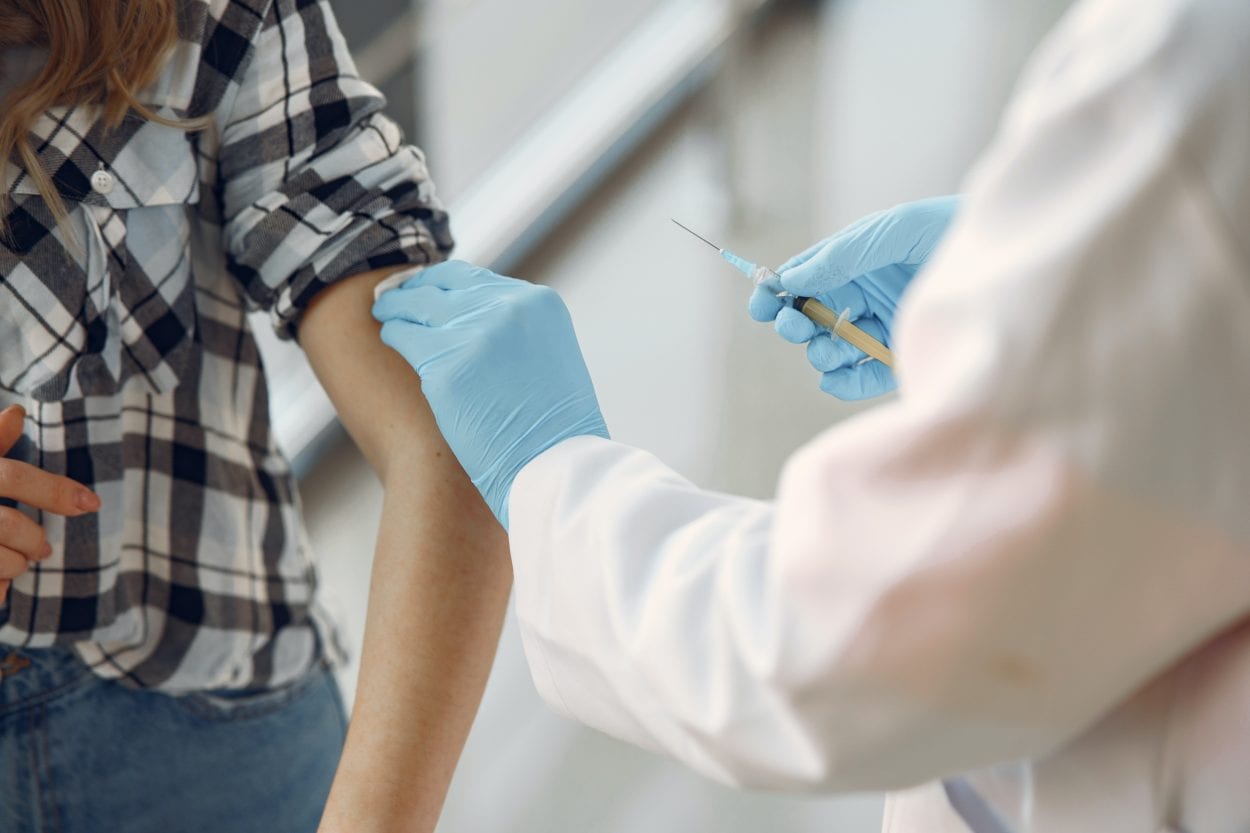Hospitalizations level off, but health officials warn we’re not out of the woods just yet
Even as hospitalizations level off in Washington state and two COVID-19 vaccines begin making the rounds, officials warn it’s still too soon to let down our guard.
“We are really at an all time high for COVID patients in our state,” says Dr. Steve Mitchell, medical director at Harborview Medical Center’s emergency department. “The last few days, things seem to have been leveling off just a little bit, which we are really pleased about. But in general, our health system is stressed.”
Mitchell, along with Mark Taylor, director of operations at Harborview, worked to create the Washington Medical Coordination Center (WMCC), which is helping hospital systems work together to shift patients depending on capacity.
“It is important that we do as much as possible to be proactive,” said Taylor, “to ensure that hospitals stay capable of providing care for time sensitive injuries and illnesses, in addition to the pandemic support that needs to occur throughout the state.”

That has been important especially for rural hospitals, such as Cascade Medical in Leavenworth, says CEO Diane Blake.
“The week ending December 4, in that about one week period, we recorded 34 percent of all of the positive COVID tests that we’ve had since the beginning of the pandemic,” she said Monday. “We ended up sending patients out of our area who needed an ICU and hospitalization.”
With the virus spreading quickly around the state, Taylor says the WMCC has struggled at times finding places that could take critically ill COVID patients.
“In some circumstances it required movement great distances to identify ICU availability for those patients, so they could receive ongoing care,” he said.
As of Monday, there were 1,207 patients with a confirmed or suspected COVID-19 case in Washington state hospitals, including 59 in Clark County’s two major hospitals.
While admitting that recent numbers show at least a slowing in the acceleration of the virus’ spread, new concerns are emerging about a strain of the virus hitting the United Kingdom and South Africa that appears to spread much more easily.
On Monday, Gov. Jay Inslee announced a new proclamation mandating anyone returning to the state from those regions quarantine for 14 days.
Inslee also removed a previous ban on indoor religious gatherings of more than 200 people, responding to a Dec. 15 decision by the Ninth Circuit U.S. Court of Appeals striking down a similar ban in Nevada.
Modern vaccine arriving this week
After winning emergency use approval from the Food and Drug Administration last week, and the Western States Scientific Safety Review Workgroup on Sunday, shipments of the Moderna COVID-19 vaccine are set to arrive this week.
The state is expecting approximately 130,000 doses of the Moderna vaccine, and an additional 45,000 Pfizer vaccine doses, though that number is likely higher since the FDA approved a technique to allow more doses from each vial.
Rural hospitals could benefit more from Moderna’s vaccine, which doesn’t require rigorous cold storage and is more easily transportable.
“It comes frozen, but then can be moved to the refrigerator,” said Eric Wymore, VP of pharmacy for CHI Franciscan, “and, as long as it’s unopened, it’s still good for 30 days.”
While there have been a handful of reported allergic reactions nationwide, no medical workers in Washington state who’ve received the Pfizer vaccine have reported any adverse reactions to this point.
“With the 2,500 employees that we’ve seen so far, the majority of them are reporting a sore arm or sore shoulder after the vaccine,” said Wymore. “And we’ve had a handful of employees with a minor temperature.”
Mitchell was the only person on a media briefing put together by the Washington State Hospitals Association Monday who had received the first dose of the Pfizer vaccine. He said his arm hurt for a while afterwards, but there had been no other ill effects.
“It was an experience that I will never forget,” he said. “Having taken care of a lot of COVID patients and been involved since day one of this pandemic, it was an incredible, incredible experience.”
Both vaccines require two doses, though the time in-between is 21 days for the Pfizer vaccine, and 28 days for Moderna’s version. The vaccines are created differently, so someone who received one kind would need to receive the same version for their second dose.
As soon as frontline medical workers receive the vaccine, the plan is to move on to long-term care facilities, including patients, as well as other healthcare employees. The next tier would likely include essential workers in many industries.
The Moderna vaccine, which ships in smaller batches and is more easily storable, will likely be used more by smaller clinics throughout the state.




